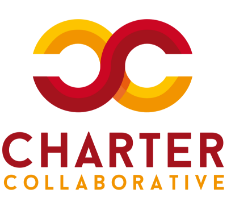[mk_page_section vertical_align=”top” layout_structure=”half_left” bg_image=”https://chartercollab.org/wp-content/uploads/2022/07/black-schoolboy-turning-camera-while-sitting-classroom-small.png” bg_color=”#0a0a0a” blend_mode=”multiply” bg_stretch=”true” video_opacity=”0.9″ padding_top=”0″ padding_bottom=”36″][vc_column][mk_padding_divider size=”160″ visibility=”hidden-sm”][mk_fancy_title tag_name=”h5″ color=”#ffffff” size=”24″ line_height=”90″ font_weight=”400″ txt_transform=”uppercase” margin_bottom=”0″ font_family=”Poppins” font_type=”google”]JULY 2022[/mk_fancy_title][mk_fancy_title tag_name=”h1″ color=”#ffffff” size=”56″ force_font_size=”true” size_tablet=”45″ line_height=”95″ font_weight=”bold” txt_transform=”uppercase” margin_bottom=”0″ font_family=”Poppins” font_type=”google”]Charter Schools Program Statement[/mk_fancy_title][mk_fancy_title tag_name=”h5″ color=”#ffffff” size=”24″ line_height=”90″ font_weight=”400″ txt_transform=”uppercase” margin_bottom=”0″ font_family=”Poppins” font_type=”google”]
By Naomi Shelton, CEO of the National Charter Collaborative
[/mk_fancy_title][mk_fancy_title tag_name=”h5″ color=”#ffffff” size=”20″ font_weight=”400″ txt_transform=”none” margin_bottom=”0″ font_family=”Poppins” font_type=”google”][/mk_fancy_title][/vc_column][/mk_page_section][vc_row][vc_column][mk_padding_divider][/vc_column][/vc_row][vc_row][vc_column][mk_fancy_title tag_name=”h3″ color=”#a3131d” size=”60″ force_font_size=”true” size_tablet=”40″ size_phone=”30″ font_weight=”400″ txt_transform=”capitalize” margin_bottom=”21″ font_family=”Poppins” font_type=”google” animation=”top-to-bottom”]
We deserve a seat at the table where decisions are being made.
[/mk_fancy_title][vc_column_text css=”.vc_custom_1657912253046{margin-bottom: 0px !important;}”]Naomi Shelton, CEO of the National Charter Collaborative, released the following statement in response to the U.S. Department of Education’s finalized Notice of Proposed Priorities, Requirements, Definitions, and Selection Criteria (NPP) for three components of the Charter Schools Program (CSP).
After a review of the U.S. Department of Education’s finalized Notice of Proposed Priorities, Requirements, Definitions, and Selection Criteria (NPP) for the Charter Schools Program, we are encouraged to see the Department took substantial feedback from the public when finalizing the language. Despite the condensed application period, we hope aspiring school leaders of color will have the opportunity to create and expand schools that ensure student achievement and support community needs.
Public institutions and systems should be the exemplar of public engagement. While community, diversity, and integration were heavily noted in the draft priorities, those ideals were not hallmarks of this process. Representatives from the communities that would have been most impacted and the support organizations that work most closely with them were excluded from the initial draft of the proposed rules. We should have been invited to the table to discuss and address the concerns the language intended to remedy.
Far too often, policy is created with little to no consideration of the disproportionately negative impact on marginalized communities. Black, brown, indigenous, and other single-site charter school founders and leaders of color have historically been constrained due to a lack of systems, money, and resources designed to support their ability to create and grow schools effectively. The Charter School Program has provided resources to these leaders to actualize schools that provide a high-quality education to students in their communities.
Families and school leaders are still navigating public health concerns and struggling to support the social and academic needs of students impacted by the pandemic. Then, parents, advocates, and practitioners were forced to take on yet another burden: getting organized to take direct action and counter an unnecessary exercise created by actors who are more concerned with protecting a system that is already failing these children than truly collaborating to improve student outcomes. The priority shown to a specific group of stakeholders who drove the effort to change the language lacked transparency and demonstrated a clear imbalance of which voices are heard and valued. The people at the center of the pushing these proposed priorities were focused on protecting their own interests, not the interests of our children. These special interest groups rarely engage with the parents, leaders, and underserved communities that would have been most impacted.
Many of those who purport to have concerns about diversity and protecting these communities’ are outsiders. They are not of these communities and do not teach the students who need the culture and climate many charter schools offer. The action parents and supporters took to rally outside the Department of Education, and the White House spoke volumes. These advocates shouted from the street because they were not welcomed and invited inside. The protests were a physical manifestation of the Department’s lack of engagement with the charter community and the families it serves. Sadly, even the final version of the rules failed to mention how these bureaucratic, burdensome roadblocks would improve student achievement or serve the most vulnerable student populations.
We appreciate the effort by the U.S. Department of Education to review and remedy the unnecessarily complex and cumbersome rules they proposed. It is our hope going forward that policymakers, practitioners, and thoughtful partners are invited to the table at the beginning of the process to address concerns that impact Black, Brown, and Indigenous serving schools, communities, and leaders.[/vc_column_text][mk_padding_divider][/vc_column][/vc_row]
